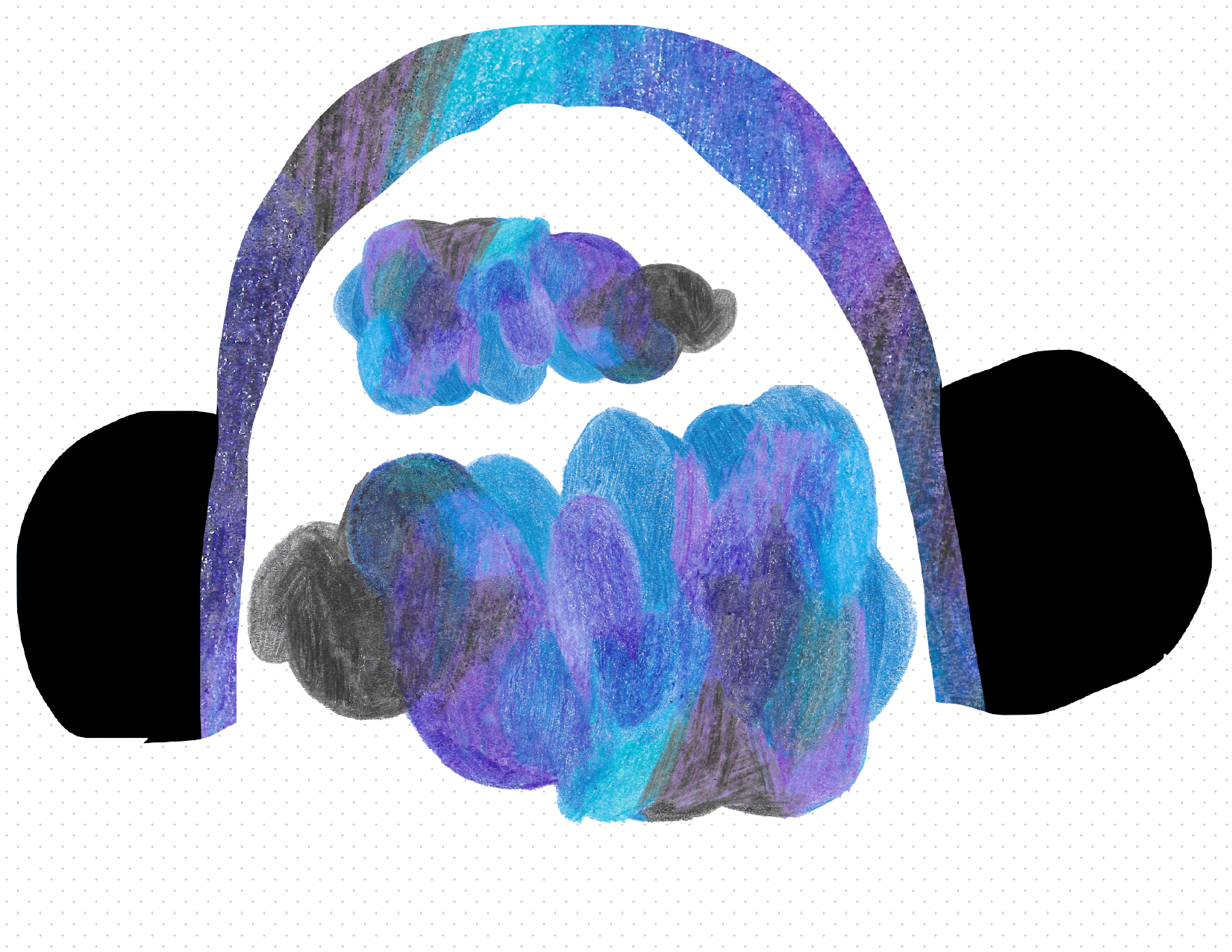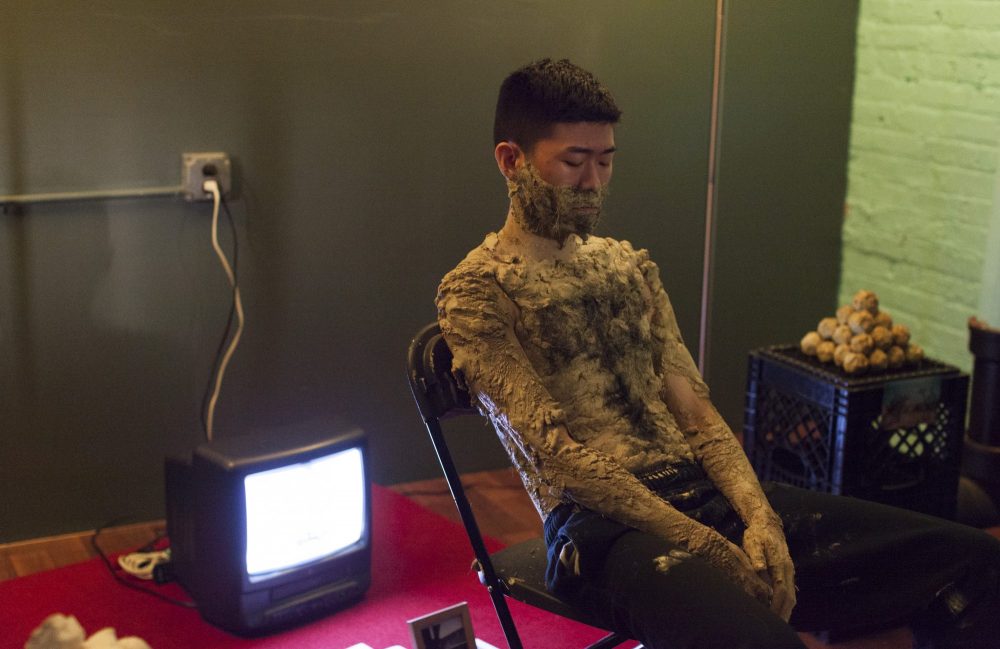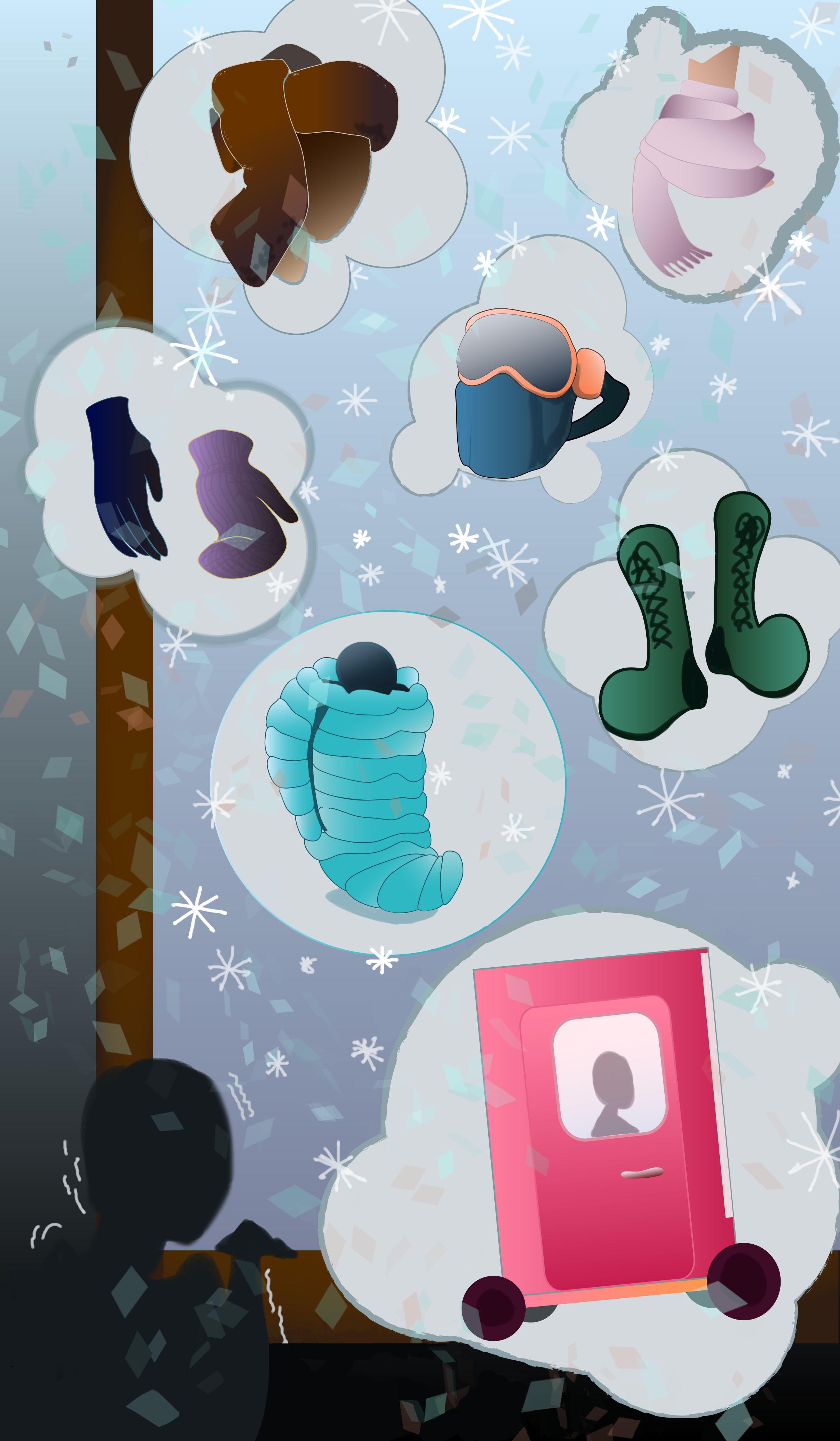
With My Mind Makes Noises, Manchester-bred band Pale Waves offers listeners a still-beating teenage heart dripping with black paint. The album — the first full-length EP for the band — is dark and glowing, nestling easily into the trend of post-punk revivalist music that dips delightfully into pop. And, in the tradition of the genre, Pale Waves pairs dreamy synth with a level of private vulnerability and yearning meant to accompany longing glances at a stranger on the subway.
Singer Heather Baron-Gracie feels like a goth Carly Rae Jepsen with her black mop of loose waves, black lipstick, and black eyeshadow. And her lyrics elicit a similar sense of open, simple desire that Jepsen employs. But Pale Waves trades out Jepsen’s shimmery neon pop for something inherently more brooding. My Mind Makes Noises is all uncertainty and unanswered questions without any song able to fully shake free from the fear of impending disappointment. This album has no Carly Rae equivalent of Run Away With Me, though it shares the same sort of pleading request.
The request made in each of the 14 songs in this album is the same — to feel loved, even for a moment, even if it doesn’t last, even if it isn’t real. On some tracks, this request feels open and hopeful. On “One More Time,” Baron-Gracie cries “I just want you one more time / Won’t you give me one last night?” with such shameless vulnerability, you can almost feel the wind through your hair as you scream the chorus in your car with the windows down. “Black” waxes more determined, with the line “You don’t love us anymore / but I do” repeated on and on.
A sense of inevitability weaves throughout this album, both the inevitability of beginnings and, more often, the knowledge that things are going to end. The track “Came In Close” offers both, chronicling a new romantic venture that brings forth desire and regret simultaneously. In the bridge, Baron-Gracie sings “I don’t wanna be just your friend / but I know that this is gonna end.”
These feelings are familiar in a way that still lands if the listener hasn’t experienced them firsthand. A desire for affirmation in the form of love or physical affection doesn’t have to be explained to be understood. Pale Waves offers listeners a way to play out these tragic fantasies in myriad ways. It almost feels indulgent. It’s easy to imagine, for example, listening to this album while wistfully looking out of the rain-speckled window of a train, walking down a rain-wet street at night, looking down at an unfamiliar city from an airplane.
And this indulgence feels familiar, too. My Mind Makes Noises comes off like the sort of overwrought, private scribbling one might write in their teenage diary after everyone else has fallen asleep. Somehow, this album finds a way to dodge the tendency to sound embarrassingly over-dramatic like most youthful diary entries do. It is Pale Waves’ simplicity that saves them here. The message is clear throughout the album: I hate that I feel lonely, but I do.
Only one track feels out of place on this album, the final track, “Karl (I Wonder What It’s Like To Die).” Here, the band stumbles in its near-perfect balancing act of raw feeling and simplicity. It’s narrative in a way the other songs aren’t, offering up a gooey, clichéd sensitivity that doesn’t quite hold up. If the album is a teenager’s diary, this track is the sincerely written catchphrase from a Young Adult novel. Something like “and in that moment, I swear we were infinite” from The Perks of Being a Wallflower. It’s well-intentioned but feels too packaged to really resonate. Luckily, “Karl” is the last song on the album so it’s easy to discreetly skip over.
Across the board though, Pale Waves plays with an intriguing combination of post-punk, synth, and pop sounds. The track “Kiss” begins with a guitar riff that feels so deceptively similar to The Cure’s “Boys Don’t Cry” that one could easily get confused even after multiple listens. But Heather Baron-Gracie delivers a clear, affected voice and a repeated hook in the chorus that makes this sound uniquely their own.
Pale Waves conjures up other sounds from other bands but combines them in ways that feel unexpected rather than redundant. In the two singles off the album that were each released before the EP came out — “Television Romance” and “There’s A Honey” — the band played in the same auditory sandbox that The 1975 had been playing in. Heavy on the synth, with bright guitar, and Baron-Gracie’s Manchester accent lilting and fraying. And, like The 1975, both of these tracks feel fatalistically positive. But that notion doesn’t feel as outwardly projected as it does often with The 1975. And with the rest of My Mind Makes Noises backing them up, both “Television Romance” and “There’s A Honey” take the familiar sound of bands like The 1975 and turn it stubbornly inward.
What listeners end up with is something more in the ilk of bands like MUNA: a dark, dreamy exploration of the intersection between post-punk and pop with a shameless vulnerability as the pin holding it all together. Often the confessions made in My Mind Makes Noises are uncomfortable, even self-pitying. An unpleasant curiosity at one’s own body as a tool for romantic desire; the recognition that a relationship died without either partner realizing it. There’s real desperation throughout, and more often than not, a desperation that isn’t particularly flattering.
Pale Waves’ unique blend of earnest vulnerability might deter some listeners, especially those who expect a certain level of lyric complexity in their music. It is still pop, and therefore at risk of seeming vapid. The music is self-serving, willing to be perceived as pathetic in its idealism, and more-so in its cynicism. But even those who may feel driven away by the band’s plain recognition of its own desire cannot deny ever feeling that hungry pull toward a romance that is doomed to disappoint. And for those ready to experience those feelings again, My Mind Makes Noises is waiting.







